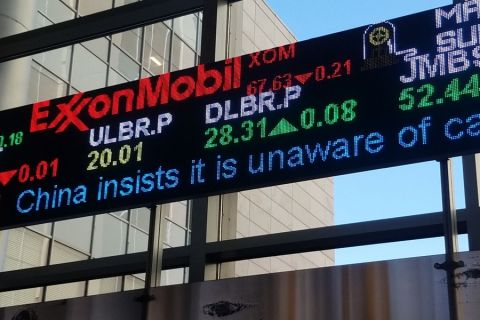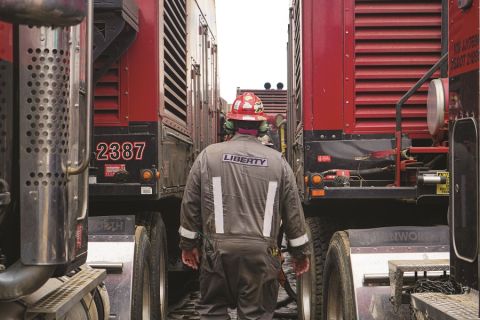Natural gas prices in the top U.S. shale field hit their lowest level in 15 months this week and continued to trade in negative territory as a supply overhang shows no sign of quickly abating.
Prices at the Waha Hub in West Texas closed at negative $2.99/MMBtu on April 15, its lowest since December 2022, according to data from LSEG. Waha gas has been trading negative for 23 out of the past 25 days, meaning producers are paying to have their gas taken away.
Natural gas in the Permian and across the U.S. has been oversupplied following a warmer-than-expected winter, offtake constraints and operational issues at a major LNG plant in Texas.
Despite negative Waha gas prices, production in the Permian is expected to rise next month alongside oil output, the U.S. Energy Information Administration (EIA) said this week in a monthly report.
Permian gas output is forecast to rise by 140 MMcf/d to 25.2 Bcf/d, while U.S. gas output is expected to fall by 258 MMcf/d to 99.9 Bcf/d, the EIA said.
In the Permian, much of the gas is produced alongside oil, which is trading near $85/bbl - a level strong enough for producers to pay to have gas taken away.
Waha negative pricing could hold through the second quarter, researchers at investment firm Tudor, Pickering, Holt & Co. said in a note on April 15, with some relief expected later in the year when the Matterhorn Express pipeline, a joint venture between infrastructure company WhiteWater, EnLink Midstream, Devon Energy and MPLX, starts service.
That 580-mile system will move 2.5 Bcf/d of natural gas from the Permian Basin to the Houston, Texas, area.
"I would expect [Waha prices] to improve towards the end of April, early May, but we are going to see continued low Waha prices until Matterhorn comes online," said Robert Wilson, vice president of analytics at East Daley Analytics.
Near-term prices will remain pressured by pipeline maintenance and outages at the Freeport LNG terminal in Texas.
Kinder Morgan's El Paso and Gulf Coast Express pipelines are both undergoing maintenance and its Permian Highway Pipeline expects a reduction in capacity next month.
Freeport, meanwhile, remained mostly offline for a fifth straight day on April 16, with gas utilization rates at 125 MMcf/d, or 5% of its fully operational use, data from financial firm LSEG showed on April 15.
The company in late March said it expects Trains 1 and 2 to remain shut until May for inspections and repairs, while Train 3 was operating.
Those outages helped put pressure on the benchmark for natural gas in the U.S., with Henry Hub NGc1 trading at around $1.68/MMBtu during intraday trading on April 16, compared with $2.28 this time last year.
Recommended Reading
ProPetro to Provide eFrac Services to Exxon’s Permian Operations
2024-04-29 - ProPetro has entered a three-year agreement to provide electric hydraulic fracturing services for Exxon Mobil’s operations in the Permian Basin.
Keeping it Simple: Antero Stays on Profitable Course in 1Q
2024-04-28 - Bucking trend, Antero Resources posted a slight increase in natural gas production as other companies curtailed production.
Oil and Gas Chain Reaction: E&P M&A Begets OFS Consolidation
2024-04-26 - Record-breaking E&P consolidation is rippling into oilfield services, with much more M&A on the way.
Exxon Mobil, Chevron See Profits Fall in 1Q Earnings
2024-04-26 - Chevron and Exxon Mobil are feeling the pinch of weak energy prices, particularly natural gas, and fuels margins that have cooled in the last year.
Marathon Oil Declares 1Q Dividend
2024-04-26 - Marathon Oil’s first quarter 2024 dividend is payable on June 10.




